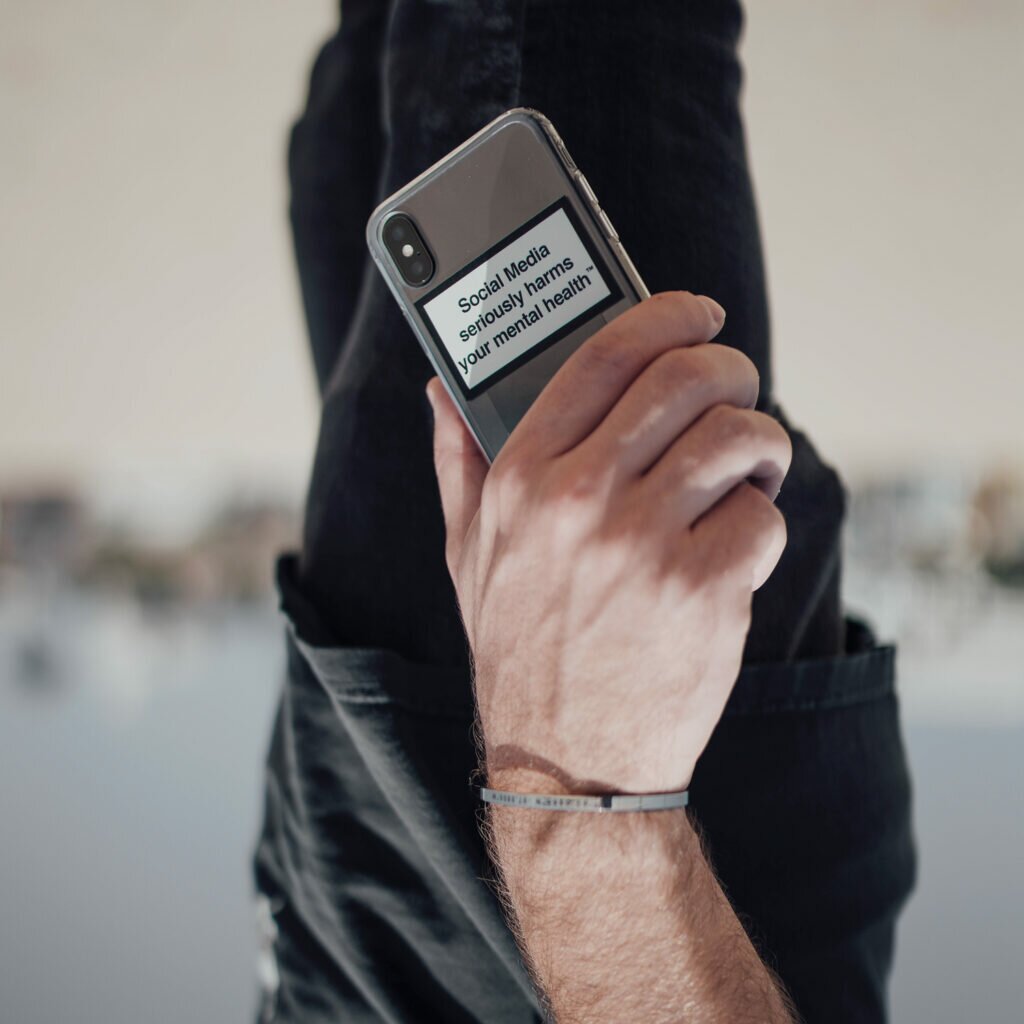It’s not just because World Mental Health Day 2021 took place last month that we’ve found ourselves thinking a lot about mental health lately, especially after 20 months of living with the Covid-19 pandemic.
Even if we (and our loved ones) have been fortunate enough not to get seriously ill, many of us have been plagued by stress, fear, anxiety, worry, insomnia, depression, loneliness, sadness, frustration and boredom.
This year’s theme for World Mental Health Day was “Mental Health In An Unequal World” as, according to the World Federation for Mental Health (WFMH), “access to mental-health services remains unequal, with between 75 to 95 per cent of people with mental disorders in low- and middle-income countries unable to access mental health services at all, and access in high-income countries is not much better”.
The WFMH goes on to note that “many people with a mental illness do not receive the treatment that they are entitled to and deserve, and together with their families and carers, continue to experience stigma and discrimination. The gap between the ‘haves’ and the ‘have nots’ grows ever wider and there is continuing unmet need in the care of people with a mental health problem”.
What’s more, even the “haves” have been struggling.
Queen of Pop Beyoncé recently revealed in a Harper’s Bazaar September 2021 cover story that she has battled insomnia from touring for more than half of her life, suffered years of wear and tear on her muscles from dancing in heels, put lots of stress on her hair and skin “from sprays and dyes to the heat of a curling iron and wearing heavy makeup while sweating on stage”, and had “spent too much time on diets, with the misconception that self-care meant exercising and being overly conscious of my body”.
The recent Tokyo Olympics 2021 might go down in history as being the one where, as Time.com put it, “the greatest gymnast of all time (USA’s Simone Biles) prioritising her mental health on the biggest stage in sports… could mark a new era of mental health awareness among athletes”. It also noted that just a month prior, “tennis champ Naomi Osaka pulled out of the French Open after citing the hurtful effect of press conferences on her mental health and her struggles with depression”.
Pre-Covid, there had already been the beginnings of a backlash against the all too contrived, all too enviable and all to perfect successful lifestyles portrayed by celebrities, influencers and every girl- or boy-next-door alike — think immaculate hair, makeup and outfits, carefully art-directed shots of beautiful homes, the latest restaurants and cafes, exotic vacations and Swimsuit Illustrated-worthy physical appearances.
Over time, the calls for more realism seem to have given way to a painfully honest, warts-and-all confessional approach, even among celebrities whom we all assumed were far better insulated from life’s pricklier moments.
For example, Chrissy Teigen, model, cookbook author and wife/muse of singer-songwriter John Legend shared on Instagram last October about suffering the miscarriage of what would have been their third child, whom they had already named Jack.
Then there was 56-year-old Czech supermodel Paulina Porizkova who posted an unflattering (compared to her glamorous magazine covers) collage of images of herself crying on Instagram after her three-month relationship with Aaron Sorkin ended.
Indeed, just Google “celebrities with mental health issues”, and out pops a whole string of articles about that. Could it be that these days, we only like, trust and identify with people with mental health issues? If so, should you also let rip on social media? After all, the #mentalhealth hashtag has been used in millions of TikTok videos, racking up 11 billion views, and generating nearly 30 million public Instagram posts.
Sharing Humanises Celebrities
“There appears to be an upward trend in individuals becoming more open to discussing their mental health issues on social media,” notes Stephanie Chan, a Singapore-based clinical psychologist in private practice at Annabelle Psychology.
“With the lockdown and restrictions due to the Covid-19 pandemic, people have generally been spending more time online. People are also feeling more isolated — that increased the risk of some individuals developing mental health concerns. Others also began to turn to social media as an avenue to interact with others virtually.” Chan works with adolescents and adults on issues such as mood and anxiety disorders, and interpersonal difficulties.
“More frequent and open discussions about mental health issues on social media may lead to a higher degree of comfort with such topics, and that can in turn trigger a ripple effect in destigmatising them, helping to increase the general level of awareness of mental health within society,” she notes.
“When celebrities share about their mental health struggles, they are lending their voices to individuals who are going through similar struggles. The edge that celebrities have is the extensive reach of their sharing, which could go a long way in raising awareness among the public,” Chan adds.
So airing your mental health struggles on social media can help you feel less isolated. It can also be a source of emotional support, keeping concerned friends up to date with how you’re doing. You might even feel you’re doing your part by showing support for causes close to your heart.
But there is a difference between sharing — and oversharing.
For example, Chan notes: “One could spread awareness about depression or anxiety by describing their own lived experiences or use their stories to encourage others who may be worried or embarrassed to speak up — the elements of public education and building a common voice could have a positive impact on the community.
“On the other hand, oversharing could look like individuals posting about symptoms arising from their conditions, such as live-streaming their emotional outbursts, engaging in negative self-talk or showing evidence of their self-injurious behaviours. They could also be sharing vivid details of their traumatic experiences.
“When little or no context is given, such information may be triggering, confusing or extremely worrying for those on the receiving end, especially when they are not prepared to receive such information, are still in the process of recovering from similar struggles and do not have access to the necessary support,” she adds.
The Dangers of Oversharing
By oversharing, you could also be putting yourself in danger. As Thriveglobal.com noted in an October 2020 editorial titled Are You Oversharing Online? Your Mental Health May Be In Danger, “Letting our guard down online may compromise our well-being, finances and privacy. Those who spent more time on social media and in a more emotionally intense way showed more symptoms of depression and anxiety compared with their peers who didn’t.”
It can also be bad for your relationships with friends and loved ones.
Chan explains: “Individuals on the receiving end may sometimes worry or become concerned about their friends, but they may not know how to respond appropriately. Additionally, people with inadequate knowledge or misconceptions about mental health conditions may have negative assumptions about these individuals’ competence or functioning as a member of society.”
So why do people still do it? According to Chan, it could all boil down to not knowing how to bring up our struggles in person.
“Sharing such information online is less intimidating than having an actual conversation. You have the power to choose how to respond to others’ reactions, at your own timing and pace, or choose not to respond when confronted by an uncomfortable conversation.”
It could also arise out of a need for validation and acceptance from your social media followers.
“The individual is basically saying, ‘There, I said it, the ball is now in your court, if you care about me and my struggles, you come and ask me about them.’ Individuals who hope to fulfil this need hrough oversharing likely feel alone in their journey, and they feel like no one has shown them concern or cares about them,” says Chan.
Sometimes, it’s simply borne out of a desire to connect with people with similar experiences. As Chan observes: “Human beings have a universal need for belonging and connection. Finding someone else who can understand and relate to one’s own experiences can be very encouraging for someone who is on the journey to getting better.”
Then again, it could be because you grew up in a family with poor boundaries and may think it’s normal and okay to share about anything and everything.
“This might lead one to repeat such behaviour in one’s social circles, and then learn that perhaps not everyone is comfortable with such details,” she continues.
Could it also be related to age? Perhaps. But contrary to what you might think, it’s not millennials or Gen Zs who reveal too much online. Research has found that it’s older people who are guilty of oversharing!
How Oversharing Puts You At Risk
“Privacy settings give us a false sense of confidence that we are in control of who we share our information with. However, with functions on mobile phones such as taking screenshots or screen recordings, we cannot be 100 per cent certain about the eventual reach of the information we share online.
“The deceptively short-lived nature of social media posts, coupled with the ‘Undo’ or ‘Delete post’ buttons, further bolsters our confidence in the ability to retract the information we share online.
“Once information is uploaded online, it is out there, regardless of the 24-hour ‘limit’. That opens one up to the risk of this information being dismissed, misused or misinterpreted. Your followers (including family, friends, colleagues) might not give you the kind of support that you were looking for, and they might even make unconstructive comments that could likely make you feel worse,” Chan notes.
Beyond the potential for embarrassment, cybersecurity consultancy Webfoot.com suggests that oversharing can have long-term consequences on your social life, education and chances of employment, as seen in these examples.
“OMG, my mom was just diagnosed with cancer.” Not only may your mother not appreciate you sharing this information, but when you apply for health insurance in the future, this piece of information may be enough to increase the rate you will have to pay or be the reason your application is rejected.
“I was so drunk last night, I’m not even sure how I got home.” Even if you’re over 21, this isn’t the reputation you want others to associate with you; worst case scenario, this might impact your car and health insurance, education and job offers.
“I’m so depressed. I hate my life.” Sharing emotional vulnerabilities is particularly risky since everyone, to some extent, is steered by emotions. If you’re sad and a scammer, creeper or bully catches wind of this, this gives him or her the opportunity to ‘listen’ to your personal issues and gain your trust so he or she can then use them against you.
How to Avoid Oversharing on Social Media
- Review all your online content and remove anything that could expose too much personal information, be an embarrassment in the future or be used to negatively impact your reputation. This includes deleting messages on your social network from friends if their comments could impact you.
- Ask your friends to remove any photographs or comments on their sites that have the potential to cause you trouble.
- Prune your contact lists. If there are people you are sharing information with who you do not personally know and like, delete them. Yes, it can cause some digital drama, but you do not want to give people access to your information unless you can fully trust them to be respectful and protective of you.
- Take time to evaluate what information you are willing to share and what you are not. Then before you push the publish button, review your content from this perspective. It is very easy to publish information but far more difficult to take it back once it’s been made public.
- Talk to your friends about your boundaries and ask them about theirs. It is rude and disrespectful to post comments, share photos or videos, or in any way expose information about someone else that they are not fully comfortable with having shared. When in doubt, ask. If someone doesn’t want to respect you and your privacy, they aren’t a real friend.
- Don’t hit post on the spur of the moment. Wait an hour, then review it to see if you still wish to upload it. Stopping to think of the ripple effect of the information you want to share — friends gossiping about you, upsetting your parents, kids or friends, the consequences if your boss or a potential love interest sees your post — might also help.


